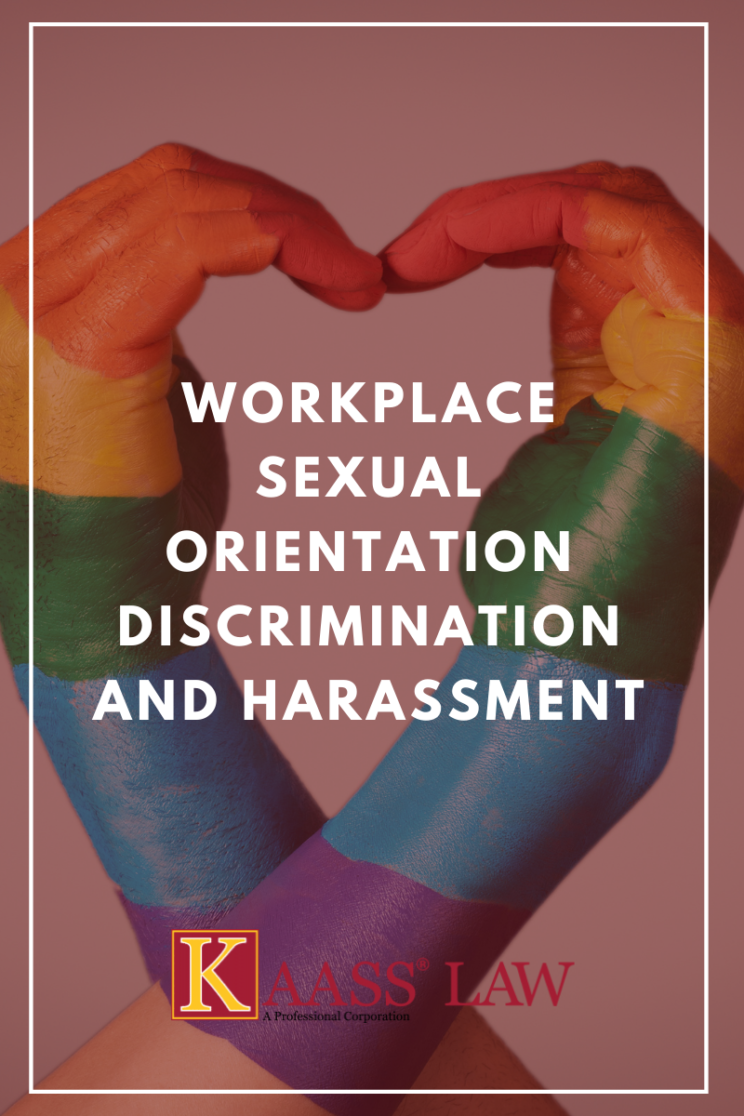According to the California Fair Employment and Housing Act, (Gov. Code §12940 et seq.), it is illegal for an employer to fire, fail to hire, or discriminate in any way against a person on the basis of their sexual orientation. Sexual orientation can mean homosexuality, bisexuality, and heterosexuality. Furthermore, includes the perception that a person has some characteristics or in case a person actually has the characteristics of a type of sexual orientation.
Fair Employment and Housing Act (“FEHA”)
Fair Employment and Housing Act apply to employers with five or more employees. The exception is the cases of harassment, where there is no minimum employer size. The FEHA also applies to labor unions, employment agencies, state licensing boards, and state and local governments. Though, the FEHA doesn’t provide protection for federal employees.
Examples of Sexual Orientation Discrimination in the Workplace
Examples of sexual orientation discrimination in the workplace include the following:
- The employer terminated the employee based on his sexual orientation
- The employer refused to hire a transgender man
- The employer fired an employee because he is a gay
- Employer harassed an employee because of a gender transition
- The employer denied a person an employee promotion because of his sexual preference
Filing a Complaint with DFEH
A discriminated employee can file a complaint with the Department of Fair Employment and Housing (DFEH). DFEH will either investigate the complaint or issue a “right-to-sue notice.
In case the DFEH finds evidence of discrimination based on sexual orientation and is not able to reach a settlement between the employer and employee, the agency can “prosecute” the case by holding a formal hearing or filing a lawsuit on behalf of the employee. In case the agency decides not to prosecute the case, the employee will receive a “right to sue” notice from the Department of Fair Employment and Housing.
Statute of Limitations in Workplace Sexual Orientation Discrimination
A person will have one year from the date of the sexual orientation discriminatory act to get a right-to-sue notice from the Department of Fair Employment and Housing.
What Can an Employee Recover in a Sexual Orientation Discrimination Lawsuit?
In case a person wins a discrimination lawsuit he may be eligible to recover the income that was lost as a result of the discrimination. The person can particularly recover:
- Compensatory damages, which include lost wages and benefits from his employment and any other economic disadvantages that happened as a result of because of discrimination.
- Emotional distress damages.
- Punitive damages. The jury will consider the employer’s misconduct in case it was extremely malicious or outrageous. Punitive damages are generally awarded for punishing the defendant.
- Attorney’s fees and costs
Workplace Discrimination Attorney
If you believe that your employer has discriminated against you on the basis of sexual orientation, we invite you to contact our employment law attorney at (310) 943-1171, for a free consultation.

